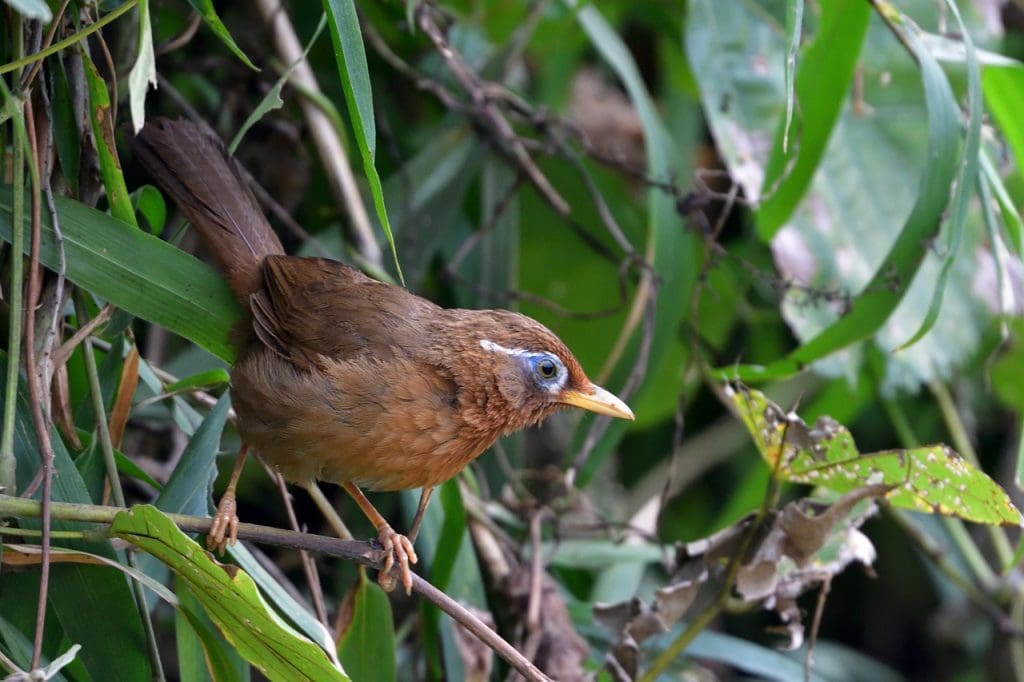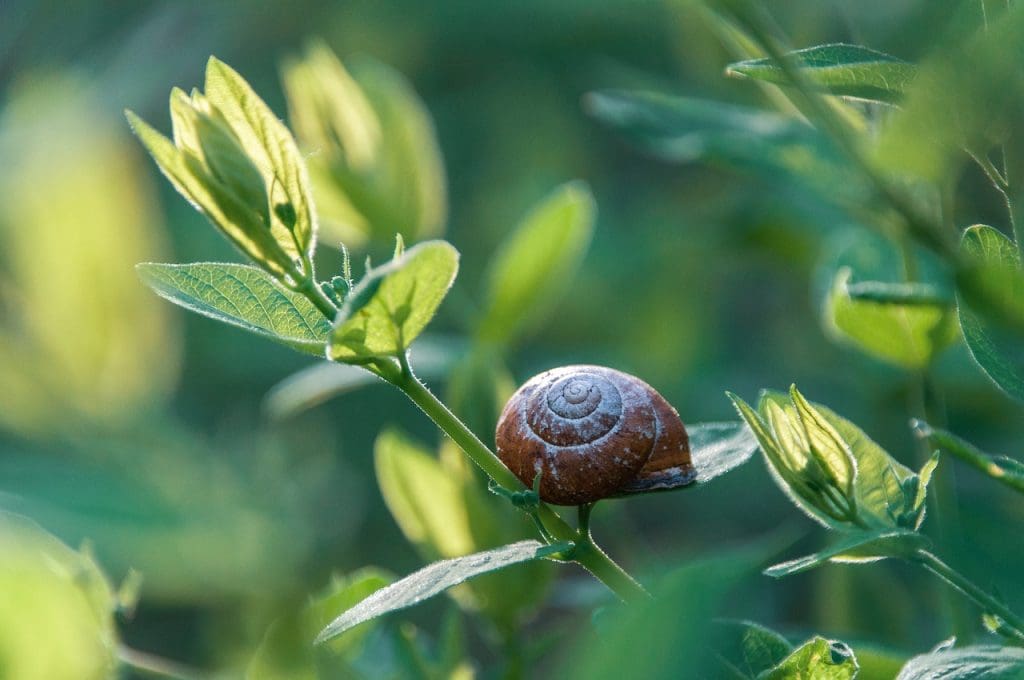In the fight against invasive alligator weed, you might feel overwhelmed by the challenges this persistent plant presents. However, “Organic Control Strategies For Managing Alligator Weed” aims to empower you with sustainable and environmentally friendly methods to tackle this issue head-on. From introducing beneficial insects to utilizing natural herbicides, you’ll discover practical and effective strategies that not only curb the growth of alligator weed but also enhance the overall health of your ecosystem. Dive into this comprehensive guide to transform your approach to managing these invasive plants with confidence and a green touch.
Organic Control Strategies For Managing Alligator Weed
Introduction
Have you ever found yourself wrestling with the seemingly undefeatable alligator weed, wondering if there’s a way to control it without resorting to harsh chemicals? You’re not alone. Alligator weed, which belongs to the Amaranthaceae family, is notorious for its aggressive growth and ability to dominate various environments, ranging from wetlands to altered states like farmlands and urban areas.
Fortunately, there’s hope. You can manage this pesky weed through organic control strategies. This not only helps you maintain a healthier ecosystem but also reduces the negative impacts on the environment. So, let’s dive into the nitty-gritty of organic control strategies for managing alligator weed.
Understanding Alligator Weed
What is Alligator Weed?
Alligator weed (Alternanthera philoxeroides) is a perennial aquatic plant originally from South America. It has since spread to many parts of the world, including the United States, Australia, and Asia. This invasive species thrives in both aquatic and terrestrial habitats, making it a versatile and resilient adversary. Its rapid growth poses a significant threat to native plants and agricultural systems.
The Problem with Alligator Weed
Alligator weed is more than just an eyesore; it impacts biodiversity, agricultural productivity, and water quality. Its dense mats can smother native plant species, reduce oxygen levels in water bodies, and serve as breeding grounds for mosquitoes. Agricultural land invaded by alligator weed sees a decline in crop yields, primarily because the weed competes for nutrients, water, and light.

Importance of Organic Control
Why Go Organic?
Using organic methods to manage alligator weed offers several compelling benefits. Organic control is sustainable, environmentally friendly, and typically safer for humans, pets, and wildlife. Additionally, it helps preserve the natural resilience and diversity of your ecosystem, making it a holistic approach to weed management.
The Principles of Organic Weed Management
Organic weed management is not just about removing or killing weeds but also about understanding the ecology of your environment to make it less hospitable for such infestations. This typically involves multiple strategies ranging from mechanical removal to biological control and soil management.
Mechanical Control Methods
Mechanical control methods involve physically removing or destroying weeds, which can be labor-intensive but highly effective. Because alligator weed can regenerate from fragments, meticulous attention to detail is paramount.
Hand Pulling and Digging
One of the simplest and most common methods for small infestations is hand pulling or digging. This technique is effective in localized areas but requires regular monitoring to prevent regrowth.
Steps for Effective Hand Pulling:
- Moisten the Soil: Make the soil easier to work with by thoroughly watering it.
- Wear Gloves: Protect your hands with gloves to avoid any allergic reactions.
- Careful Removal: Grasp the alligator weed near the base and pull gently to remove both the plant and root system.
- Dispose Properly: Place the removed plants in a sealed bag to prevent fragments from establishing new infestations.
Mowing and Cutting
For larger infestations in terrestrial environments, mowing or cutting can be a viable option. This method helps to manage the weed by depleting its stored energy, though it doesn’t eradicate the root system.
Mowing Tips:
- Regular Intervals: Mow at frequent intervals to prevent the weed from flowering and seeding.
- Height Matters: Adjust your mower height to target the weed without damaging desirable plants.
- Clean Equipment: Ensure your equipment is clean to prevent spreading weed fragments.
Water Level Management
In aquatic environments, manipulating water levels can be an effective control strategy. Lowering water levels exposes the weed to unfavorable conditions, ultimately reducing its growth.
How to Do It:
- Monitor Water Levels: Regularly check water levels and adjust them to disrupt the growth cycles of alligator weed.
- Gradual Changes: Avoid sudden water level changes to protect native aquatic life.
- Collaborate: Work with local authorities if the water body is shared or governed by regulations.

Biological Control Methods
Biological control involves the use of natural predators or pathogens to manage weed populations. This eco-friendly approach is sustainable and minimizes chemical applications.
Introducing Natural Predators
Certain insects and animals naturally feed on alligator weed, making them valuable allies in its management.
Biocontrol Agents:
| Biocontrol Agent | Habitat | Effectiveness |
|---|---|---|
| Alligator Weed Flea Beetle (Agasicles hygrophila) | Aquatic | High |
| Alligator Weed Stem Borer (Arcola malloi) | Terrestrial and Aquatic | Medium |
| Alligator Weed Thrips (Amynothrips andersoni) | Terrestrial and Aquatic | Medium |
Implementation:
- Identify the Right Agent: Choose a biocontrol agent suited to your environment and specific weed problem.
- Release in Stages: Gradually release biocontrol agents to allow them to establish and begin impacting the weed population.
- Monitor Results: Regularly check the effectiveness and take action if biocontrol agents are not performing as expected.
Encouraging Native Competitors
Promote the growth of native plants that can outcompete alligator weed. Native plants often have established relationships with the local ecosystem, making them resilient adversaries against invasive species.
Encouragement Methods:
- Plant Diversity: Increase the diversity of native plants to cover all available niches.
- Soil Fertility: Enhance soil fertility through organic matter like compost or mulch to give native plants a competitive edge.
- Regular Monitoring: Keep an eye out for the resurgence of alligator weed and take immediate action if necessary.
Cultural Control Methods
Cultural control involves altering the environment and adopting practices that favor the growth of desired species over weeds. This proactive approach focuses on creating unfavorable conditions for alligator weed while promoting the health of your ecosystem.
Mulching
Mulching can be a powerful tool to suppress weed growth, retain soil moisture, and improve soil quality. Organic mulch like wood chips, straw, or chopped leaves can be both effective and beneficial.
Benefits of Mulching:
- Weed Suppression: Blocks sunlight, making it difficult for weeds to grow.
- Moisture Retention: Keeps soil moist, promoting healthy plant growth.
- Soil Improvement: Breaks down into organic matter, enhancing soil fertility.
Crop Rotation
If you’re dealing with alligator weed in agricultural settings, crop rotation can help manage this invasive species. Rotating crops disrupts the weed’s life cycle and reduces its ability to establish itself.
Effective Crop Rotation:
- Diverse Crops: Grow a variety of crops in different seasons to confuse and suppress the weed.
- Planting Legumes: Use legumes in your rotation to enhance soil nitrogen levels and improve overall soil health.
- Monitor Results: Regularly assess the effectiveness of your rotation strategy and adjust as needed.
Soil Solarization
Soil solarization involves using plastic sheets to trap solar energy, effectively “cooking” the weed seeds and roots. This method is especially useful in areas with high levels of sunlight.
How to Solarize Soil:
- Clear the Area: Remove any debris or existing plant material from the area.
- Moisten the Soil: Water the soil thoroughly to enhance the effectiveness of solarization.
- Cover with Plastic: Lay clear plastic sheets over the soil and secure the edges to trap heat.
- Monitor and Maintain: Keep the area covered for 4-6 weeks during the hottest months for best results.

Integrated Weed Management (IWM)
What is Integrated Weed Management?
IWM combines several control methods to manage alligator weed effectively. By integrating mechanical, biological, cultural, and sometimes even minor chemical methods, you create a robust and resilient strategy against this invasive weed.
Benefits of IWM
The main advantage of IWM is that it reduces the dependency on any single method, thereby minimizing the potential for resistance development and increasing overall effectiveness. This approach also aligns well with organic principles, making it a sustainable choice.
Developing an IWM Plan
Steps for Creating an IWM Plan:
- Assess the Situation: Identify the extent of the alligator weed infestation and understand the specific environmental conditions.
- Choose Control Methods: Select a combination of control methods best suited to your situation.
- Implement Sequentially: Apply the methods in a planned sequence to maximize their effectiveness.
- Monitor and Adjust: Regularly review the results and tweak your strategy as needed for continuous improvement.
Preventive Measures
Preventing the spread of alligator weed is crucial for long-term management. Adopt preventive measures to keep new infestations at bay.
Hygiene Practices
Clean your equipment thoroughly after use to prevent the unintentional spread of weed fragments.
Cleaning Tips:
- Inspect Thoroughly: Check all parts of your equipment, especially those in contact with soil or water.
- Use Brushes: Use stiff brushes to scrub off any plant fragments.
- Rinse and Dry: Rinse with water and let equipment dry completely before use.
Early Detection and Monitoring
Regularly inspect your property for early signs of alligator weed and take immediate action to control new infestations.
Effective Monitoring:
- Scheduled Inspections: Conduct periodic checks of your property, especially in prone areas.
- Record Findings: Keep a log to track the appearance and spread of alligator weed.
- Respond Promptly: Address any signs of infestation immediately.
Educating the Community
Raise awareness within your community about the problems caused by alligator weed and the benefits of organic control methods. A collective effort can lead to more effective management.
Community Outreach:
- Workshops: Host workshops or talks to educate on identification and control methods.
- Flyers: Distribute informative flyers with tips and best practices.
- Social Media: Leverage social media to spread awareness and share success stories.

Case Studies and Success Stories
Let’s look at some real-world examples where organic control strategies have proven effective against alligator weed.
Case Study 1: Agricultural Land in the Southeast US
The Problem:
A farm in the Southeast US struggled with alligator weed invading their crop fields, significantly reducing rice yields.
The Solution:
- Mechanical Removal: Regular hand-pulling and digging combined with mowing.
- Biological Control: Introduction of the alligator weed flea beetle.
- Cultural Practices: Implemented crop rotation and mulching.
The Result:
Over two growing seasons, the infestation was reduced by 80%, and crop yields improved.
Case Study 2: Urban Waterways in Australia
The Problem:
An urban waterway in Australia was overrun by alligator weed, affecting local biodiversity and water quality.
The Solution:
- Water Level Management: Periodic lowering of water levels.
- Biological Control: Introduction of alligator weed thrips.
- Community Engagement: Organized local clean-up drives and educational workshops.
The Result:
Within a year, the weed coverage was cut by half, and native species began to return.
Conclusion
Managing alligator weed is undoubtedly a challenging task, but it is far from impossible. By adopting organic control strategies, you can protect your environment and promote a healthier ecosystem. Whether through mechanical, biological, cultural methods, or an integrated approach, these organic practices can help you effectively manage this invasive species.
Remember, consistency and vigilance are your best allies in this battle. Regular monitoring and prompt action will ensure that your efforts are successful in keeping alligator weed at bay.
So next time you find yourself facing the relentless growth of alligator weed, take comfort in knowing that you have a variety of organic strategies at your disposal. With patience, persistence, and a bit of effort, you can reclaim your space and restore harmony to your environment.

